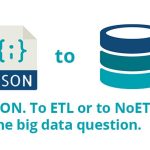New reforms under the General Data Protection Regulation (GDPR) started as an attempt to standardise data protection regulations in 2012. The European Union intends to make Europe fit for the digital age. It took four years to finalise the agreements and reach a roadmap on how the laws will be enforced. The GDPR presents new opportunities as well as difficulties for businesses, … [Read more...] about How GDPR Drives Real-Time Analytics
Big Data
Learn everything you need to know about big data. Find out how companies are using this revolutionary technology and what it means for your business strategy.
9 Prospects of Big Data Based iPhone Apps
Amongst the most user-friendly and enchanting technology innovations in the current century, big data and cloud technology iOS app development solutions are the most robust, secure, scalable, and universally acceptable. Big data represents the extremely complex and large sets of data that may be structured, semi-structured, or unstructured. Useful information can be mined from … [Read more...] about 9 Prospects of Big Data Based iPhone Apps
JSON: To ETL or to NoETL? The Big Data Question
NoETL. The little brother of NoSQL You have probably come across the term NoSQL. It was coined a few years back to describe a class of database systems that can scale across a large number of nodes for distributed (and sometimes global processing) of transactions (OLTP). Very early technologies were DynamoDB and Cassandra. These technologies trade in scalability for consistency … [Read more...] about JSON: To ETL or to NoETL? The Big Data Question
5 Changes Expected in the Tech Companies in the Next 20 Years and Beyond
In the future, the business landscape will change beyond recognition. Advances in technology will be the primary drivers of this shift. Over the recent past, trends such as social networking have rocked the business landscape. Other tech trends such as speech recognition developed slower than expected. There is no doubt that technology will continue to transform the business … [Read more...] about 5 Changes Expected in the Tech Companies in the Next 20 Years and Beyond
4 Traditional Industries Reshaped by Big Data and Analytics
Big data has become more popular in 2018. Whether structured or unstructured, big data is made up of large datasets that can be mined for more information. Given that traditional industries are also being disrupted, there is no escaping the impact of big data across the board. But first, let us have a glimpse of these so-called traditional industries and see some of the effects … [Read more...] about 4 Traditional Industries Reshaped by Big Data and Analytics
What is big data?
Big data is a term that refers to the massive amount of digital data created and shared every day. Big data can transform how we live, work, and communicate. It can be used to improve everything from public health and urban planning to business and marketing.
Big data is also changing the way we think about privacy and security. The volume, velocity, and variety of big data present challenges and opportunities for organizations and individuals. Regardless, big data is here to stay, and its impact will only continue to grow in the years to come.
What is big data analytics?
Big data analytics is the process of turning large, complex data sets into actionable insights. Businesses use various analytical tools and techniques, including machine learning and statistical analysis, to do this.
Big data analytics can be used to improve decision-making in areas like marketing, operations, and customer service. It can also be used to identify new business opportunities and optimize existing processes. With the help of big data analysis, businesses can gain a competitive edge by using their data better.
Want to learn more about big data? Datafloq has courses available. Contact us to get started.
When was big data introduced?
The term big data was coined in the 1990s, with some giving credit to John Mashey for popularizing the term. However, the concept of big data has been around for much longer.
Where does big data come from?
In the early days of computing, scientists and businesses began to realize that the amount of data being generated was increasing exponentially. As a result, they began to develop new methods for storing and processing data.
Over time, these methods have become increasingly sophisticated and have played a key role in enabling businesses to make sense of vast amounts of information. Today, big data is used in various industries, from retail to healthcare, and its importance is only likely to grow in the years to come.
What are examples of big data?
One of the most common examples of big data is social media data. With over 2 billion active users, Facebook generates a huge amount of data every day. This includes information on user interactions, posts, and even location data. Analyzing this data can help companies better understand their customers and target their marketing efforts.
Another example of big data is GPS signals. These signals are constantly being generated by devices like cell phones and fitness trackers. When combined with other data sets, GPS signals can be used to provide insights into everything from traffic patterns to human behavior. Finally, weather patterns are another type of big data set. By tracking these patterns over time, scientists can better understand the impact of climate change and develop strategies for mitigating its effects.
How do companies use big data?
Companies use big data in marketing, product development, and customer service. By analyzing large data sets, businesses can identify patterns and trends that would be otherwise difficult to spot. For example, a company might use big data to track customer behavior patterns to improve its marketing efforts.
Alternatively, a company might use big data to improve its products by identifying areas where customers are most likely to experience problems. For instance, big data can be used to improve customer service by finding pain points in the customer journey. Ultimately, big data provides companies with a valuable tool for gaining insights into their business operations.






